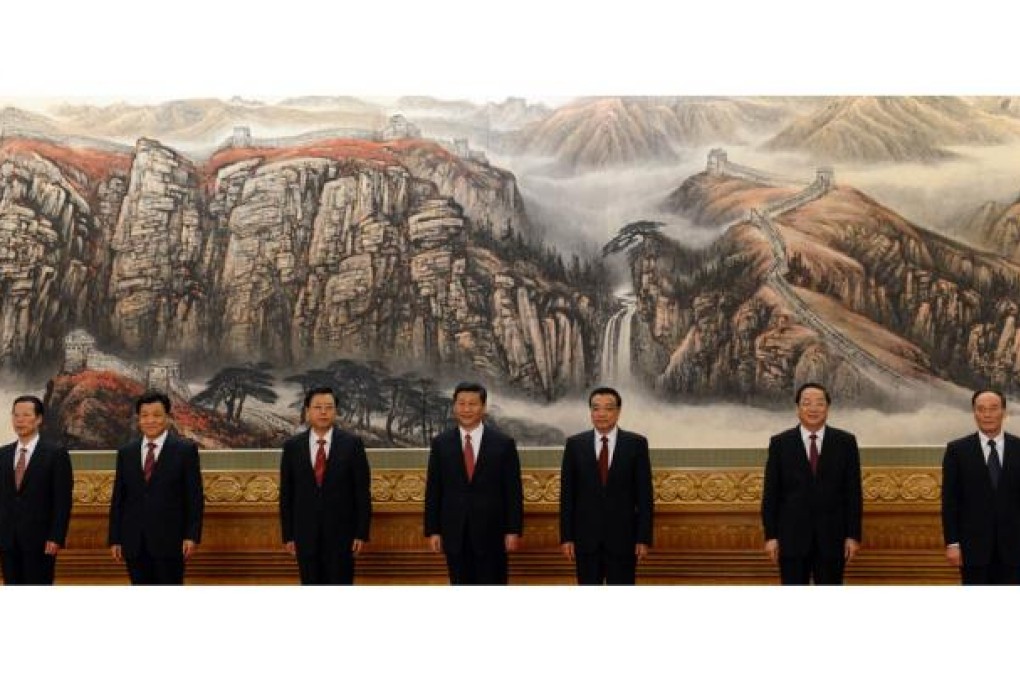New leaders must guide China to the next stage of its development

China's next generation of leaders is now known, their unveiling yesterday ending months of speculation as to who the Communist Party would choose to take the nation through the coming decade. Xi Jinping heading the line-up of seven dark-suited members of the top governing body, the Politburo Standing Committee, was not surprising, nor was the choice of the man who stood beside him in the No 2 spot, Li Keqiang. But the others on the red carpet in the Great Hall of the People were there less through rank than bargaining and back-room deals by factions and interest groups. They may not necessarily share the same visions and goals, yet the country depends on them quickly finding common ground so that increasingly serious challenges can be resolutely confronted.
Political transitions are never easy and Xi's not having a direct hand in choosing those with whom he will work makes his job harder. A decade-old system of collective leadership governing through consensus will help, as should the Standing Committee's smaller size, but hard choices lie ahead that will require an enlightened guiding hand. China is at a crossroads, a juncture that needs more than the model of economic growth that served so well under outgoing President Hu Jintao and his predecessors to smoothly negotiate. If the nation is to move confidently forward, there has to also be major economic and political reforms. The party's goal has always been economic growth and stability and that will continue. But despite years of double-digit GDP growth, there is widespread discontent. With breakneck development has come corruption, environmental degradation and vast inequality of wealth.
Officials, from the province to township level, have won rewards legitimately and otherwise through capital-intensive infrastructure projects that have created short-term GDP growth and employment. Xi yesterday followed his predecessors in warning of the threat of corruption, which can be properly tackled only with wide-ranging reforms. That means opening the political system to competition, oversight and rule of law. If the nation is to move forward, changes have to be detailed and timetables put in place. People have to have power to govern themselves, a judiciary that can answer their grievances and a media that is able to ensure transparency.
No new prospects for change have been offered by the just-ended congress. They remain enigmatic - the subject of an ideological and philosophical divide in the party. Officials and economists have long conceded the need for reforms to put the economy on a sustainable growth path. These calls have gone unheeded by the party, with the state sector growing ever more powerful at the expense of the private sector.
In his keynote speech at the congress, Hu pledged that China would consolidate and develop public ownership, a signal that state-owned enterprises will continue to dominate. Alongside graft, however, rebalancing the economy remains a major challenge. The country must reduce its dependence on exports and state investment and focus more on domestic consumption. There is a need for a more positive commitment to stimulate the private economy.